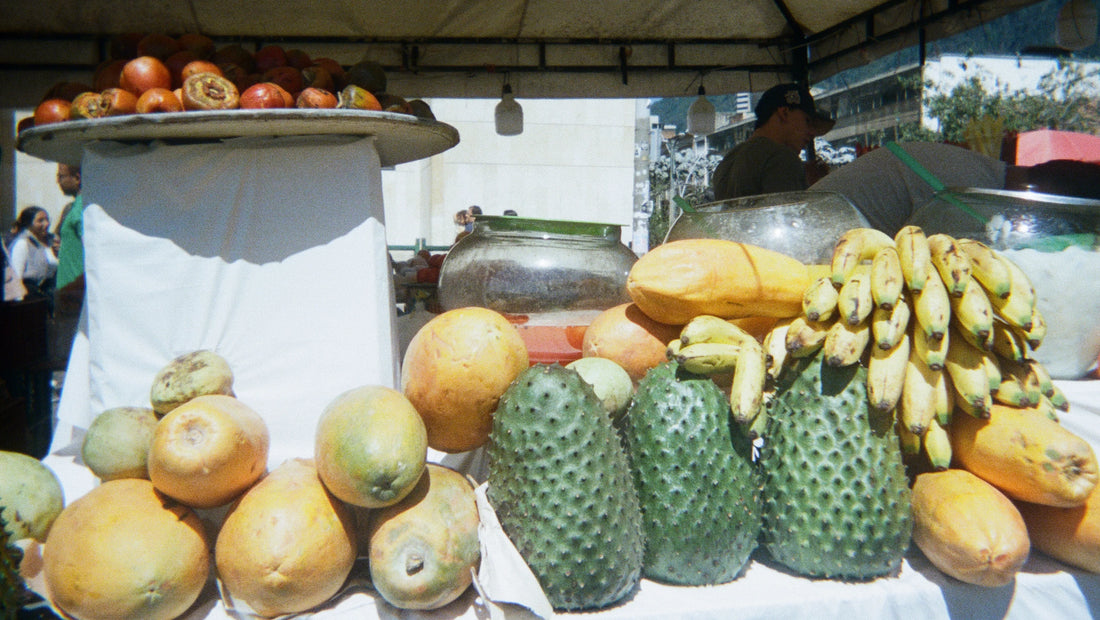
Understanding the Candida Diet + Helpful Tips For Yeast Infections
Share
Recurrent yeast infections can be both uncomfortable and frustrating. Many folks explore various remedies, including dietary changes like "The Candida Diet", to find relief. But what does this "diet" (we hate that word) even entail? Is it effective? Is it a waste of time?
Let's dive deeper. Candida Diet or not let's discuss actionable steps—including lifestyle adjustments, dietary recommendations, and product suggestions—to help manage and prevent recurrent yeast infections and get a little bit better at understanding our bodies.
What Is the Candida Diet?
The Candida diet is a low-sugar, anti-inflammatory eating plan designed to reduce the overgrowth of Candida yeast in the body. It emphasizes eliminating sugar, white flour, yeast, and cheese to curb yeast growth. The diet encourages the consumption of non-starchy vegetables, lean proteins, and gluten-free grains.
The theory is that reducing sugar and refined carbohydrates starves Candida yeast, which feeds on these substances. While the effectiveness of the diet is not definitively proven, some individuals find it helps manage symptoms.
Full Breakdown of The Candida Diet Here
Does the Candida Diet Work?
Although research on the Candida diet itself is limited, some studies suggest that dietary sugar plays a role in promoting Candida overgrowth. For example, a study published in the Journal of Infectious Diseases found that glucose promotes yeast adhesion to human epithelial cells, potentially exacerbating infections. (Source)
While the diet may not be a cure-all, reducing sugar and adopting an anti-inflammatory eating plan may improve overall vaginal and gut health, which are closely linked to Candida management.
5 Dietary Suggestions to Support Vaginal Health
While we do not follow the Candida Diet entirely we found some science backed tips to improve nutrition if you are someone who deals with recurrent yeast infections.
1. Reduce Sugar and Refined Carbohydrates
- High sugar intake can fuel Candida growth. Limit added sugars, sugary beverages, white bread, and pastries.
- Opt for whole grains like quinoa, brown rice, or oats instead of refined grains.
2. Incorporate Probiotic-Rich Foods
- Probiotics help maintain a healthy balance of bacteria, which can inhibit yeast overgrowth.
- Add yogurt with live cultures, kefir, sauerkraut, kimchi, or miso to your diet.
- Research shows that Lactobacillus probiotics can help prevent and manage vaginal infections.
3. Eat Antifungal Foods
- Include garlic, coconut oil, and oregano in your meals—these foods have natural antifungal properties.
- A study in Microbial Pathogenesis highlighted garlic's effectiveness against Candida albicans.
4. Focus on Anti-Inflammatory Foods
- Chronic inflammation can make the body more susceptible to infections.
- Incorporate leafy greens, turmeric, fatty fish (like salmon), and berries into your meals to combat inflammation.
- A diet rich in anti-inflammatory foods supports overall immune health.
5. Stay Hydrated
- Proper hydration supports the body’s natural detoxification processes. Aim for at least eight glasses of water a day, or about 1/2 your body weight in ounces of water.
How Can I Get Rid of Recurrent Yeast Infections?
Managing and preventing recurrent yeast infections often requires a multifaceted approach. Here are practical steps you can take:
Maintain Proper Hygiene
Keep the vulva clean and dry. Avoid using scented soaps or unnecessary 'hygiene' products that can disrupt the natural balance of bacteria.
Wear Breathable Clothing
Opt for loose-fitting, cotton underwear and avoid tight clothing that traps moisture.
Consider Dietary Adjustments
As mentioned above, a balanced diet with limited sugar and refined carbs, along with probiotic-rich and antifungal foods, can help maintain a healthy vaginal microbiome.
Use Gentle Products That Do Not Disrupt pH
Our products are designed to support vaginal health without disrupting the natural flora. These are our favorite for fighting yeast infections.
-
-
- Salve: Immediately cooling + soothing. Addresses root cause of issue with plant based ingredients.
- Probiotic: Clinically proven to improve gut and vaginal microbiome as well as boosts immunity to fight infection.
- Hydrosol: For those of us who are triggered by the gym and being sweaty this multi purpose body mist can be used everywhere.
-
Consult a Healthcare Professional
If you experience recurrent yeast infections, consult with a healthcare provider to rule out underlying conditions and discuss appropriate treatment options.
Finding Answers For Recurrent Infections
While the Candida diet offers potential benefits for some, it’s essential to approach it with realistic expectations. Combining dietary adjustments with lifestyle changes and supportive products can create a comprehensive strategy for managing and preventing yeast infections. Always remember what works for one person, may not work for another.
Your body is unique, and finding what works for you is a personal journey. At Momotaro Apotheca, we are here to support you every step of the way with products that align with your natural ability to heal.
Note: This blog is for informational purposes only and does not constitute medical advice. Please consult a healthcare professional for personalized recommendations.
Related Reading
Meet Our Founder: Learn About Her Long Journey With Recurrent Infections
Five Simple Vulva Care Trips You Should Try

